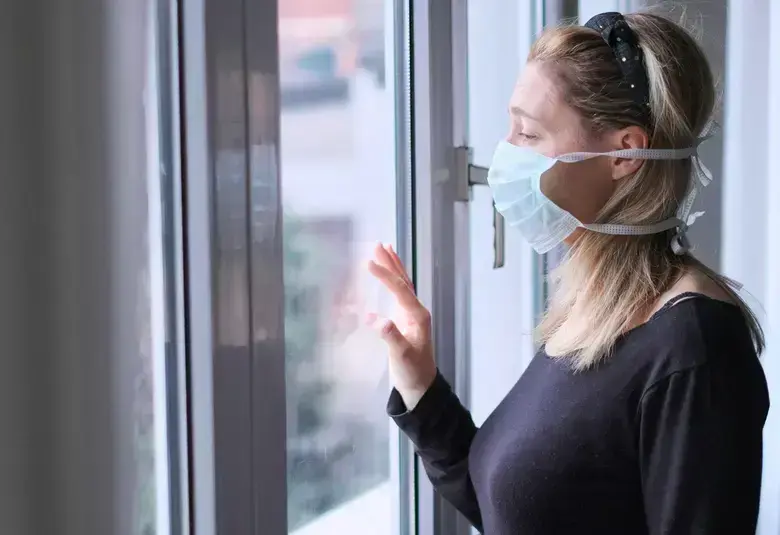The complexities of preventing and managing infection are multiplied in people living with dementia. Problems of memory and understanding limit self care, while the proximity of carers poses risks to all. In patients who become critically ill, delirium may exacerbate dementia.
감염 예방 및 관리의 복잡성은 치매 환자일 경우 대폭 증가합니다. 치매 환자는 기억력과 이해력 문제로 인해 자가 관리에 한계가 있는 한편, 간병인과의 근접성은 모두에게 위험을 초래합니다. 질병의 증세가 위독해지면 섬망으로 인해 치매가 악화될 수도 있습니다.
Of people who have Alzheimer’s dementia (AD), 81 percent are aged 75 or older.1 The mean age at onset of motor symptoms of Parkinson’s disease (PD) is around sixty years.2 The number of comorbidities rises steeply with age: in a recent study, 39% of Americans aged over 65 had three or more chronic conditions.3
알츠하이머 치매 환자 중 81%는 75세 이상입니다.1 파킨슨병의 운동 증상이 시작되는 평균 연령은 약 60세입니다. 2 동반 질병의 수는 연령이 높아질수록 급격히 증가합니다. 최근 한 연구에서는 65세 이상 미국인 가운데 39%가 3개 이상의 만성 질환을 앓고 있는 것으로 나타났습니다.3
So it is clear that people with these forms of neurodegenerative disease – and especially those with AD dementia – have a high age-related risk of developing complications from COVID-19 infection, and hence a high risk of hospitalization and need for intensive care.4
따라서 이러한 유형의 신경 퇴행 질환이 있는 환자, 특히 알츠하이머 치매 환자는 코로나19 감염 시 연령 관련 합병증이 발생할 위험이 높고, 이에 따라 입원 위험과 집중 치료 필요성이 증가합니다.4
Double hit
더블 히트
With 50 million people in the world having dementia,5 and with the global total of known COVID-19 cases rocketing towards a million on a rapidly accelerating curve,6 we have an unfortunate conjunction of pandemics.
전 세계 치매 인구가 5천만 명에 이르고5 코로나19 확진자 수가 급격한 상승 곡선을 그리며 1백만 명을 향해가는 지금,6 우리는 세계적 유행의 결합이라는 안타까운 상황에 직면하고 있습니다.
Wang et al7 have recently given the situation a sober appraisal. Their letter to The Lancet identified many factors that pose particular problems for people with dementia, even when they live outside nursing homes:
최근 왕 외(Wang et al)7의 연구는 현재 상황에 대한 냉철한 평가를 했습니다. 이 연구진은 영국의 의학 저널 란셋(The Lancet)에 보낸 letter을 통해 치매 환자가 요양원에 거주하지 않을 때에도 특정 문제를 유발하는 다양한 요인을 다음과 같이 정리했습니다.
- Limited access to and understanding of scientific information
- Memory problems making it difficult to maintain social distance and other protective measures such as handwashing
- Little or no capacity to use the internet and social media
- Reliance on one or more carers, and the inevitability of intimate contact
- For those very ill to need hospital care, there is the stress of displacement and the risk of hypoxia-induced delirium.
- 과학 정보에 대한 제한적 접근성과 이해력
- 사회적 거리 유지와 손 씻기 등 여러 안전 지침 준수를 어렵게 만드는 기억력 문제
- 인터넷 및 소셜 미디어 이용 능력이 낮거나 없음
- 1명 이상의 보호자∙간병인에 대한 의존성, 밀접 접촉의 불가피성
- 질병의 증세가 위중하여 입원 치료가 필요한 경우에는 거처 이동으로 인한 스트레스와 저산소증으로 인한 섬망 위험
Although to a lesser extent, similar considerations apply to elderly people with advanced PD. Lack of contact with physiotherapists and the inability to take recommended outdoor exercise are specific problems.
진행성 파킨슨병을 앓는 고령 환자들도 정도는 좀 더 약하지만 이와 유사한 문제들을 고려해야 합니다. 이 경우에는 특히 물리치료사와의 접촉 기회가 부족해지고 기존에 권장되었던 야외 운동을 할 수 없게 되는 것이 특징적인 문제가 됩니다.
Sources of support
지원의 원천
Recent experience in China suggests the importance of multidisciplinary working, of making counseling available to carers, and of the remote delivery of stress reduction programs such as relaxation and meditation.7
최근 중국의 사례는 다학제적 협력, 보호자 및 간병인을 위한 상담, 휴식 및 명상 등 스트레스 완화 프로그램 원격 제공의 중요성을 시사합니다.7
Resources to help cope with the COVID-19 emergency have been developed by the American Academy of Neurology.8 These cover recommentations on the implementation of telemedicine, including how to perform a remote neurologic exam.9 There is specific advice on telemedicine for PD, and a live demonstration.
미국신경과학회(American Academy of Neurology)는 코로나19로 인한 긴급 상황 대처에 도움이 되기 위한 자료들을 개발했습니다.8 해당 자료는 원격 신경 검사 수행 방법을 비롯하여 원격 의료 실행에 관한 권고 사항을 담고 있습니다.9 이와 함께 파킨슨병 원격 진료에 관한 구체적인 조언과 실시간 시범 영상 등을 활용할 수 있습니다.
Our correspondent’s highlights from the symposium are meant as a fair representation of the scientific content presented. The views and opinions expressed on this page do not necessarily reflect those of Lundbeck.
본 기사는 토론회에서 발표된 과학 지식 내용을 공정하게 전달하였습니다. 본 기사에서 제시된 의견은 룬드벡의 의견과 다를 수 있습니다.




